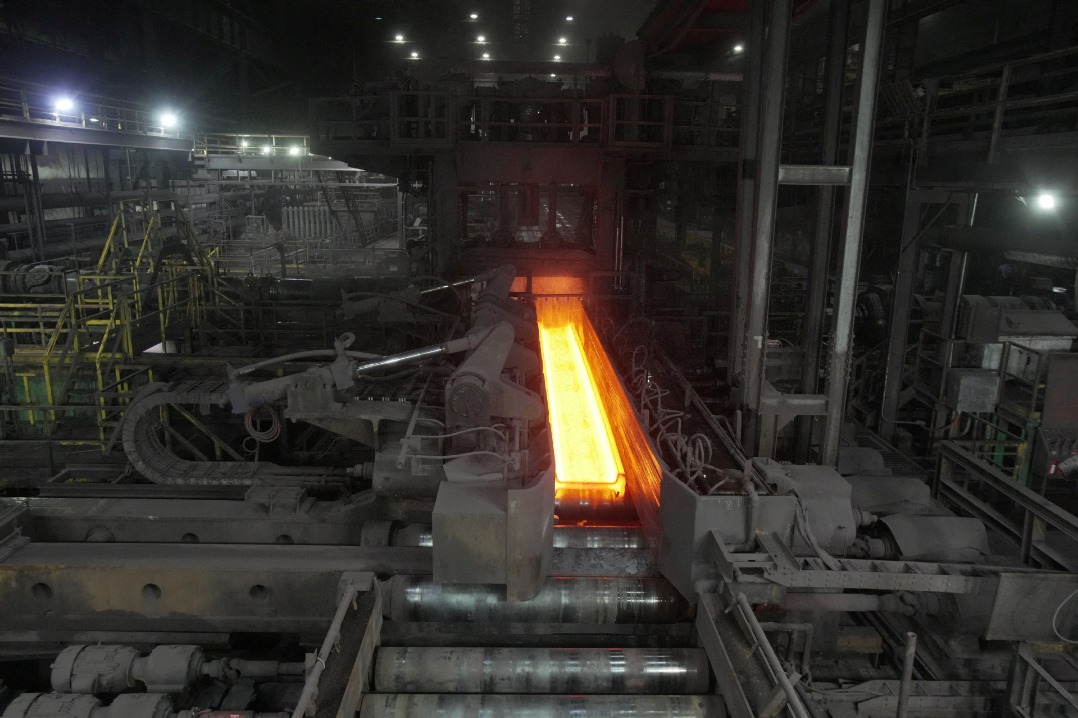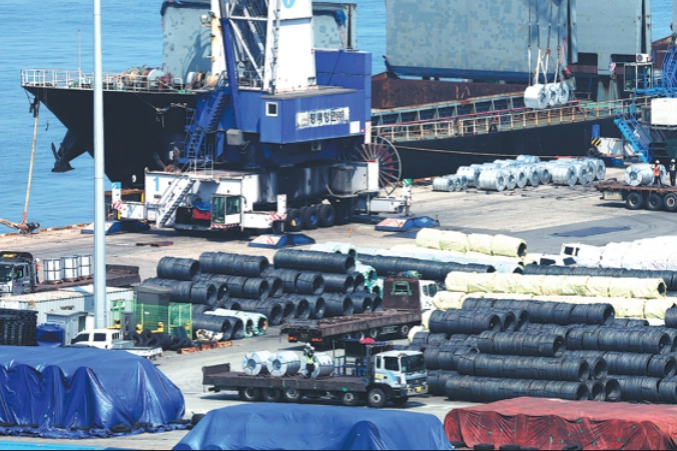US businesses seek relief as tariffs bite


Sorghum, minerals, copper among exports affected in trade dispute
Earl Roemer had high hopes when he sent the first container of sorghum grain to China two years ago, but now exports have completely stopped.
"The trade situations kill it," said Roemer, founder and president of Nu Life Market, a sorghum producer in Scott City, Kansas.
China had long been a major importer of US sorghum for livestock feed, but Roemer's grains had a higher-value application - as an ingredient of baijiu, a Chinese liquor.
To meet the demand from Chinese baijiu producers, Roemer's company developed a special type of grain with characteristics similar to the ancient grain that was used to produce baijiu thousands of years ago. Nu Life Market had established relationships with six baijiu companies in China before the tariff dispute started.
Roemer canceled plans to visit those Chinese partners in November. "Right now we're just waiting for the normalization of trade. When that happens, then all at once we're going to have a great opportunity to be able to export those grains again," he said.
The trade tensions are harming working families as well.
"These new tariffs have created challenges for all of our residents by threatening good-paying jobs, increasing the price of goods and filling us all with a bit of a sense of uncertainty," Nevada State Treasurer Zach Conine told an audience of businesspeople, officials and experts during a recent meeting on China in Las Vegas.
Through his own experience of running a company, Conine said he believes in the value of trust and the importance of finding common ground, but the tensions between the two countries have damaged that trust, which threatens the state's pillar industries of tourism, mining and renewable energy.
"Of the 56 million visitors that came to Nevada last year, more than 250,000 visited from China, which represents a 30 percent increase from the previous five years," he said."A third of our residents rely on jobs created by the tourism economy."
The mining and mineral resources sector has been hit by the trade disputes."Nevada's mining companies produce $7.8 billion worth of revenue and are responsible for providing jobs to more than 14,000 people, according to the treasurer.
However, more than $510 million in Nevada exports have been affected by new tariffs; nearly half relate to copper and mineral reserves, he said.
Green energy
The tariffs also impact the development of green energy and the state's commitment to reducing dependence on fossil fuels, since the Trump administration imposed a 30 percent tariff on Chinese made solar energy products last year.
Nevada installed more than 3,500 megawatts of solar power, and more than 60 percent of the photovoltaic cells that Nevada homes and businesses depend on came from China, said Conine.
The US administration should commit to fostering a robust exchange of ideas and culture and solve the challenges through finding common ground, said Conine.
In the business community, the No 1 impact of the trade tensions is uncertainty, said David K. Young, CEO of Oxford Analytica, a consulting firm headquartered in UK.
"It is this idea and concept of uncertainty that makes decision-makers, executives, public, private organizations very nervous. And when you're very nervous, it's very hard to make informed, long-term decisions," said Young. "If you speak to people in the markets and financial institutions, it's very hard to commit significant amounts of capital to long term initiatives."
Saruhan Hatipoglu, CEO of the US consultancy Business Environment Risk Intelligence, echoed Young's remarks.
"If you talk to anybody in the financing or investment business, they will tell you that they like risk, but what they hate is uncertainty. I think both countries, especially from the US side, need to understand that this is a global economy and the two countries need to cooperate," said Hatipoglu.
- Female Japanese ex-SDF member sues govt, abusers for sexual assaults
- US slammed for repeated policy shifts
- France charges Telegram CEO Durov: prosecutor
- Japan pledges to ensure quality, safety of aquatic products exported to China
- S. Korean sex slavery victim during WWII dies, 6 victims still alive

































